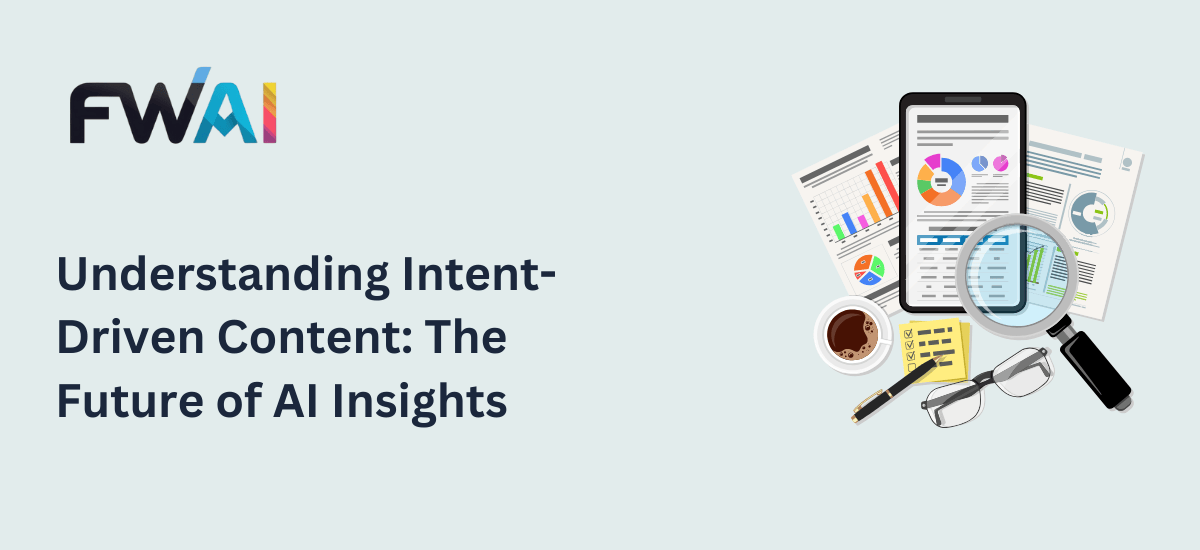
Contents
In an era where digital communication is the heartbeat of marketing, understanding user intent has never been more critical. As businesses strive to connect with their target audiences, generational AI emerges as a powerful tool that can analyze user behavior, preferences, and motivations. By harnessing these insights, companies can create highly relevant content that resonates deeply with their audience, driving engagement and conversions. Welcome to the future of marketing, where intent-driven content is not just a trend, but a necessity.
The Role of Data Analysis in Content Creation
At the core of intent-driven content lies the power of data analysis. Marketers today have access to vast amounts of data generated from various sources—social media interactions, website analytics, customer feedback, and more. Leveraging big data, AI algorithms can identify trends and preferences that shape effective content strategies tailored for diverse demographics.
For instance, by analyzing user interactions with content, AI can pinpoint what types of articles, videos, or infographics are most engaging for different segments of the audience. This intelligent analysis helps marketers develop a comprehensive understanding of their customers, enabling them to craft content that speaks directly to their interests and pain points. The result? A more focused content strategy that not only attracts attention but also fosters deeper connections with the audience.

Source : Unsplash
Personalization at Scale: Crafting Unique User Experiences
As businesses harness intent-driven insights, the ability to deliver personalized content experiences becomes a game-changer. Imagine a scenario where a user visits an e-commerce website and is immediately greeted with product recommendations based on their past browsing behavior and preferences. This level of personalization enhances user experience, making customers feel valued and understood.
AI-driven personalization allows businesses to cater to individual user needs at scale. By utilizing insights gathered from data analysis, marketers can tailor content, offers, and communications to resonate with each user. This approach not only boosts customer satisfaction but also cultivates brand loyalty. When users receive content that aligns with their interests, they are more likely to engage, convert, and return for future interactions.
Ethical Considerations in AI-Driven Content Strategies
While the advantages of AI-driven content strategies are significant, they come with ethical considerations that must not be overlooked. As marketers embrace generational AI to create content, issues such as data privacy, bias, and authenticity become paramount.
Data privacy is a critical concern in the digital age. Customers are increasingly aware of how their data is being used, and marketers must prioritize transparency in their practices. Ensuring that data collection methods are ethical and that users have control over their information is essential for building trust.
Additionally, the potential for bias in AI algorithms raises questions about the authenticity of content. If AI systems are trained on biased datasets, the content generated may inadvertently perpetuate stereotypes or exclude certain demographics. Marketers have a responsibility to ensure that their content strategies are inclusive and represent the diversity of their audience.
Future Trends: AI's Evolving Influence on Content Marketing
As we look ahead, the influence of AI on content marketing is set to evolve further. Advancements in natural language processing (NLP) and machine learning will enable even more sophisticated content generation and analysis. Predictive analytics will allow marketers to anticipate user behavior and preferences, leading to hyper-targeted content strategies.
Moreover, as AI technologies continue to advance, we can expect an increase in the use of chatbots and virtual assistants in content delivery. These tools will not only facilitate real-time customer interactions but also provide personalized content recommendations based on user behavior and preferences.
In summary, the future of content marketing is intertwined with the capabilities of generational AI. By understanding user intent and leveraging data analysis, businesses can create personalized experiences that resonate with their audiences. However, as we embrace these advancements, it is crucial to navigate the ethical implications associated with AI-driven content strategies. By doing so, marketers can build trust, foster loyalty, and ultimately drive conversions in this dynamic digital landscape.
As we move forward, the integration of AI in content marketing will not only transform how we create and deliver content but also redefine the relationship between brands and consumers. The journey toward intent-driven content has just begun, and the possibilities are limitless. Embrace the future with Futurewebai, where innovation meets insight, and let us help you navigate the evolving landscape of digital communication.